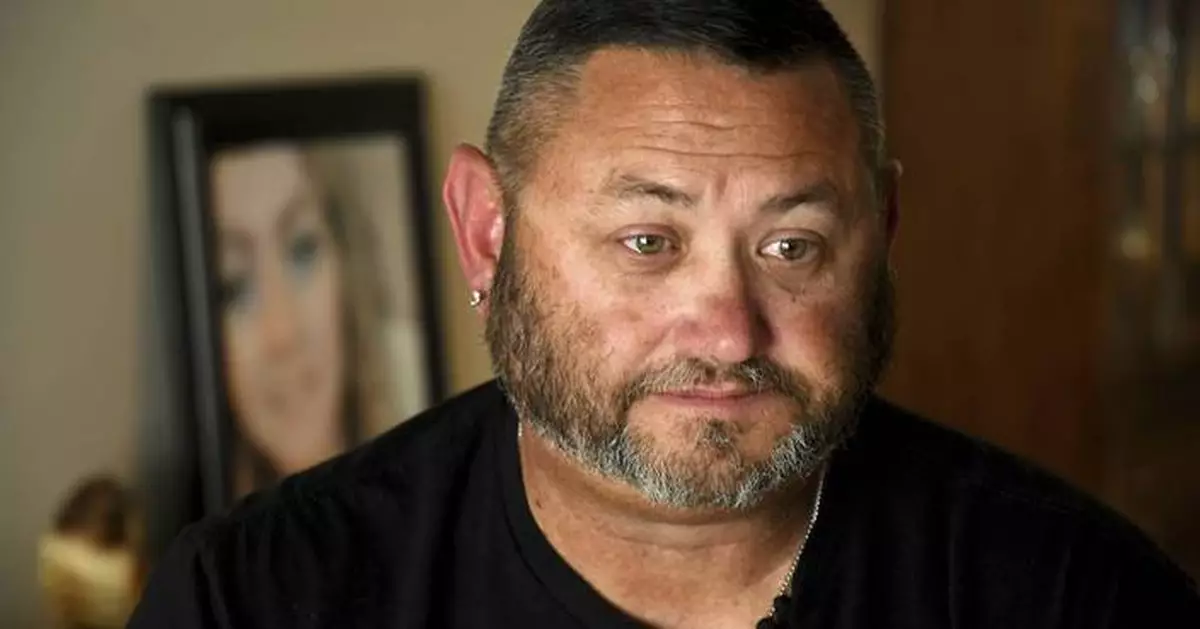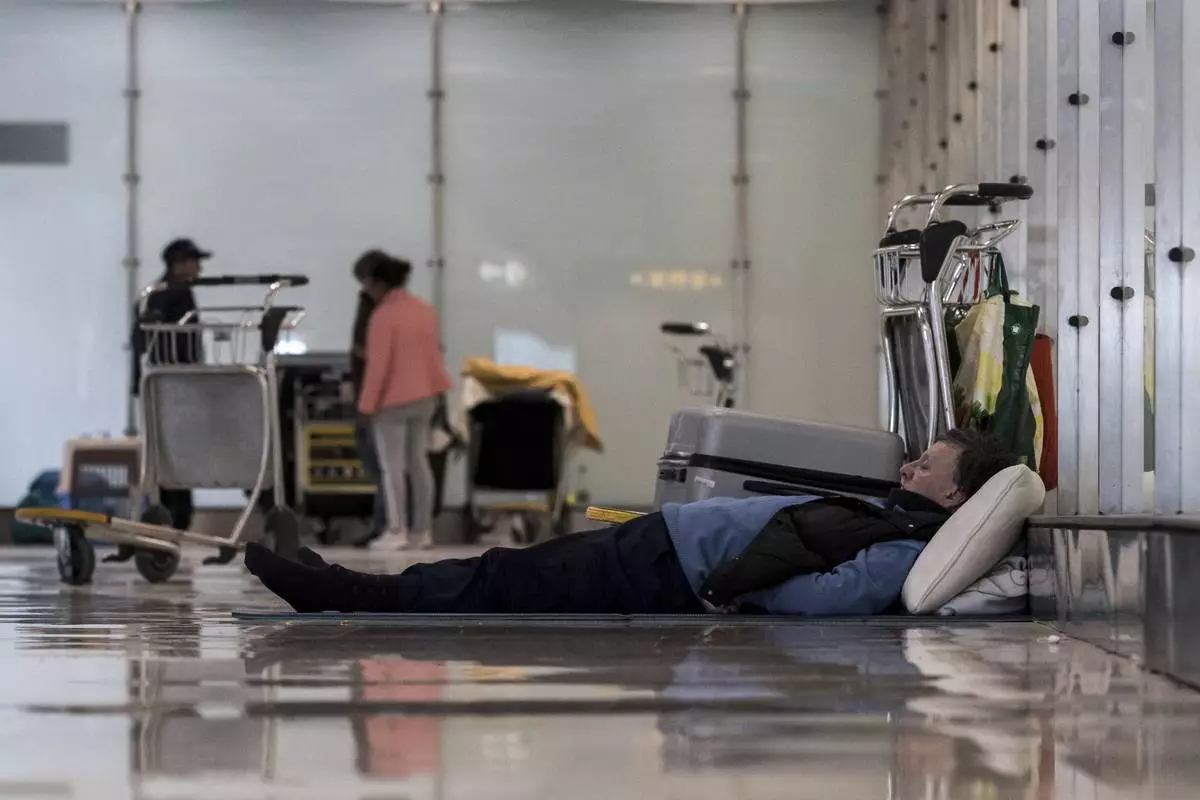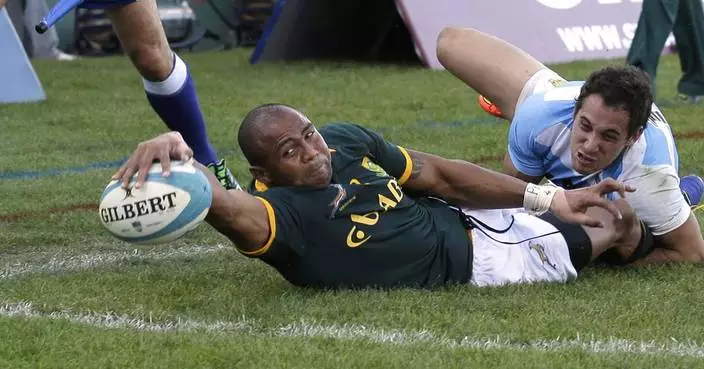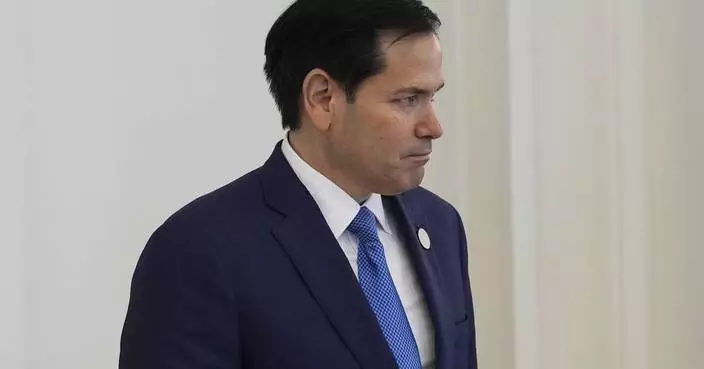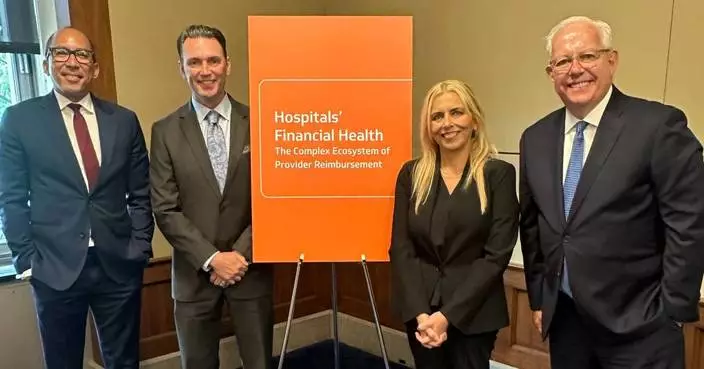DENVER (AP) — A man sitting in his van after fixing a coffee machine inside a supermarket in the college town of Boulder was the first person killed. In just over a minute, nine more people died in a barrage of gunfire inside and outside the store in 2021 as the shooter targeted and pursued people who were moving.
Survivors fled out of the back of the store to escape the bullets. For more than an hour, others hid in shelves, checkout stands and offices.
Ahmad Al Aliwi Alissa, then 21, surrendered after being shot in the leg by a police officer in the store, emerging wearing only his underwear and repeatedly asking officers to call his mother. His attorneys don't dispute he was the shooter.
But why he carried out the mass shooting remains unknown as his trial is set to begin this week. Public questioning of potential jurors began Tuesday with opening statements expected before the end of the week. Alissa is charged with 10 counts of first-degree murder, 15 counts of attempted murder and other offenses, including having six high-capacity ammunition magazine devices banned in Colorado after previous mass shootings.
The closest thing to a possible motive revealed so far was when a mental health evaluator testified during a competency hearing last year that Alissa said he bought firearms to carry out a mass shooting and suggested that he wanted police to kill him.
Robert Olds, whose 25-year-old niece Rikki Olds was the manager Alissa fatally shot at close range near the entrance, plans to sit in his usual spot in the front row throughout the trial. He has sometimes wished Alissa had just died in the attack. But he has held out hope that he would one day learn why his niece, known for her sense of humor and outgoing personality, and the others were killed. He has become less hopeful of that but is certain Alissa knew what he was doing.
“I hope he goes to prison for the rest of his life, and then he’ll serve the real penalty when he has to meet God and answer for killing 10 people,” he said.
The trial is expected to focus largely on Alissa's mental state at the time of the shooting. He was diagnosed with schizophrenia and pleaded not guilty by reason of insanity. His lawyers argue he should be acquitted because his mental illness prevented him from being able to tell right from wrong.
The defense argued in a court filing that his relatives said he irrationally believed that the FBI was following him and that he would talk to himself as if he were talking to someone who was not there. However, prosecutors point out Alissa was never previously treated for mental illness and was able to work up to 60 hours a week leading up to the shooting, something they say would not have been possible for someone severely mentally ill.
Alissa’s trial has been delayed because experts repeatedly found he was not able to understand legal proceedings and help his defense. But after Alissa improved after being forcibly medicated, Judge Ingrid Bakke ruled in October that he was mentally competent, allowing proceedings to resume.
Prosecutors will have the burden of proving he was sane, attempting to show Alissa that knew what he was doing and intended to kill people in the store.
Authorities have not explained why Alissa bypassed a King Soopers near his home in the Denver suburb of Arvada and drove about 15 miles (24 kilometers) to the chain’s store in Boulder, a city he had never visited before the shooting, according to the defense.
Prosecutors have presented evidence that, in the months before the shooting, Alissa had researched things like how to move and shoot with an assault rifle and what kinds of bullets are the most deadly. One court document noted without elaboration that he searched for information about the “Christ Church attacks," an apparent reference to the livestreamed shooting attacks by a white nationalist on two mosques in Christchurch, New Zealand, that killed 51 people in 2019.
Alissa immigrated from Syria with his family as a toddler. He lived with his family in Arvada, where they owned a restaurant.
The only known problem Alissa had before the shooting was an incident in high school in 2018 when he was convicted of assaulting a fellow student, according to police documents. A former classmate also told The Associated Press that Alissa was kicked off the wrestling team after yelling he would kill everyone following a loss in a practice match.
A sister-in-law who lived in Alissa’s home told police that he had been playing with what she thought was a “machine gun” two days before the shooting before two relatives took it away, according to court documents.
Several of Alissa’s relatives are listed as potential witnesses for the defense during the trial.
Both sides will rely on experts to testify about his sanity, possibly including videos of their interviews with Alissa, said defense lawyer Karen Steinhauser, a former prosecutor and University of Denver law professor.
If jurors don’t believe Alissa was legally insane, they could also consider whether his mental illness prevented him from being able to act with deliberation and intent and find him guilty of second-degree murder instead, she said.
A sanity evaluation done by experts at the state mental hospital found Alissa was legally sane at the time of the attack, according to details provided by the defense in a court hearing this spring. According to the defense, the evaluators found the attack would not have happened but for Alissa’s untreated mental illness, which attorney Sam Dunn said was schizophrenia that included “auditory hallucinations.”
Olds said he is bracing himself to learn more horrific details about the shooting, including surveillance video not previously shown in public.
But he said having the trial behind him will help him and many of the families finally grieve what they’ve lost, he said.
“There’s no such thing as moving on. It’s finding other ways to live without your loved one,” he said.
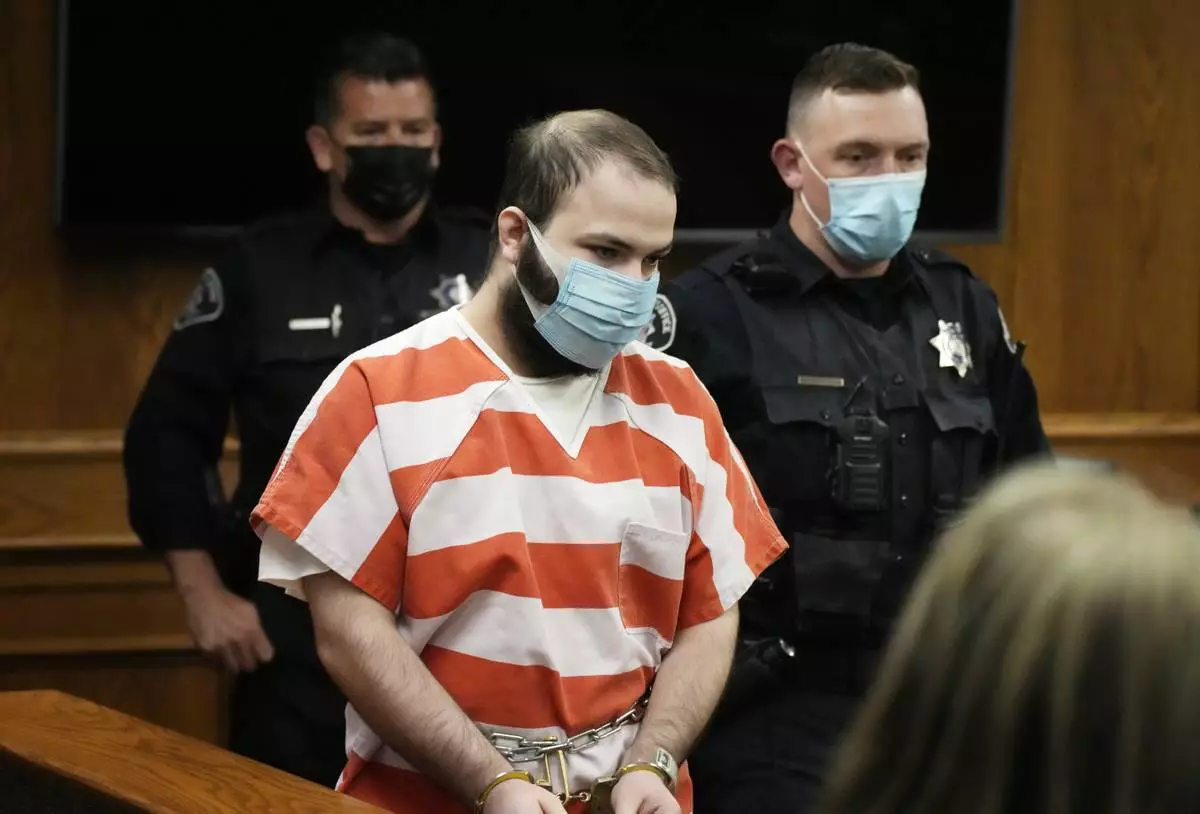
FILE - Ahmad Al Aliwi Alissa, accused of killing 10 people at a Colorado supermarket in March 2021, is led into a courtroom for a hearing, Sept. 7, 2021, in Boulder, Colo. (AP Photo/David Zalubowski, Pool, File)
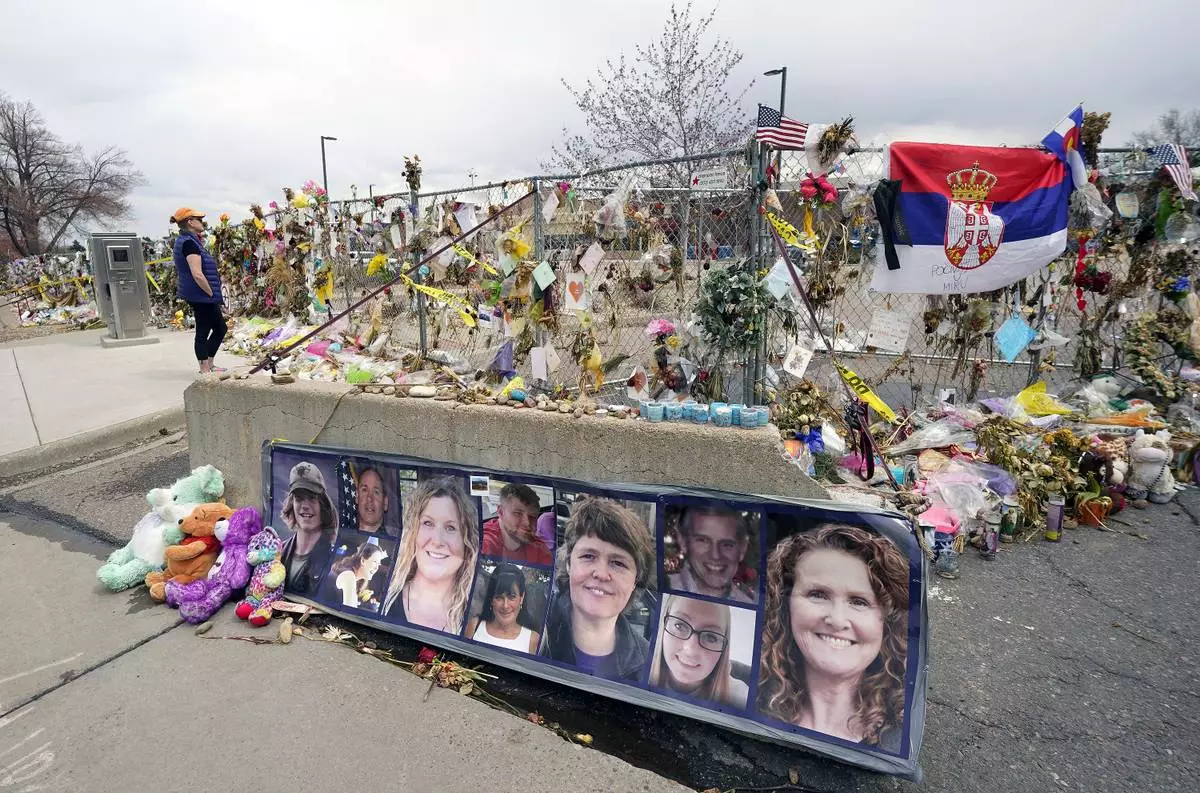
FILE - Pictures of the 10 victims of a mass shooting in a King Soopers grocery store are posted on a cement barrier outside the supermarket in Boulder, Colo., on April 23, 2021. (AP Photo/David Zalubowski, File)
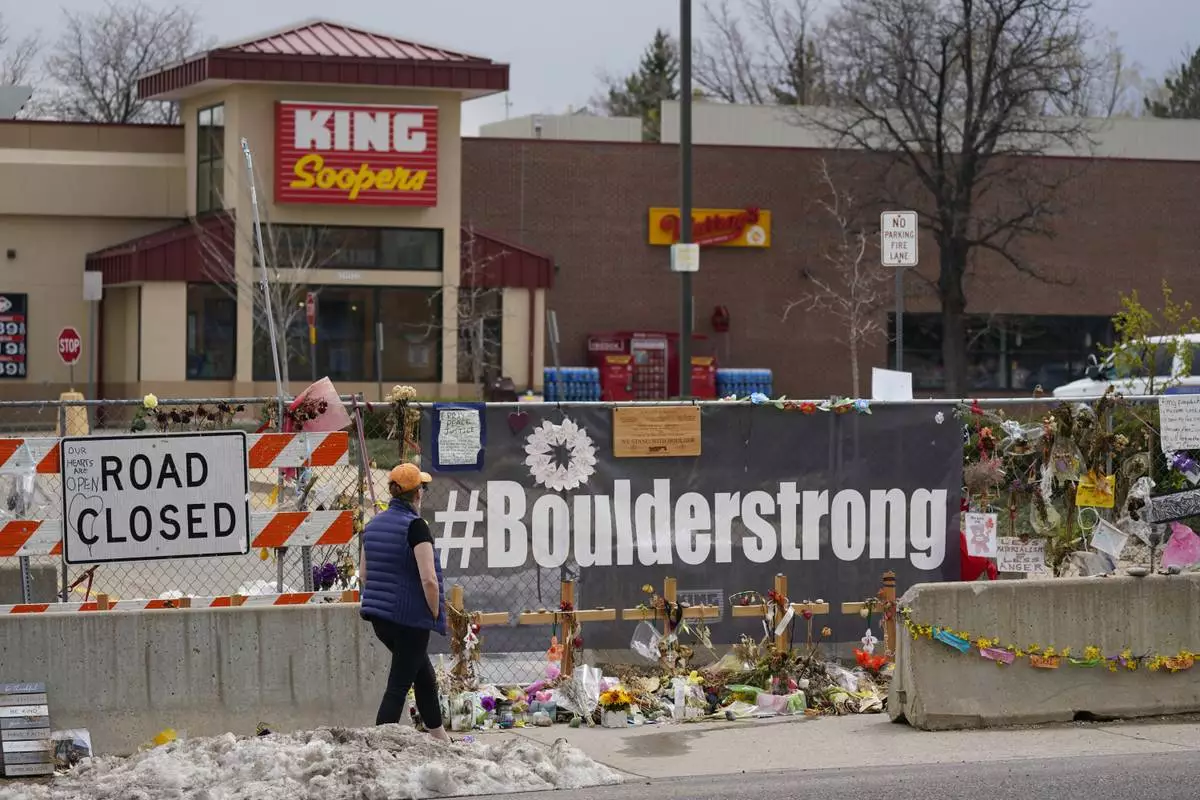
FILE - Tributes cover the temporary fence around the King Soopers grocery store in which 10 people died in a mass shooting in late March on Friday, April 23, 2021, in Boulder, Colo. (AP Photo/David Zalubowski, File)
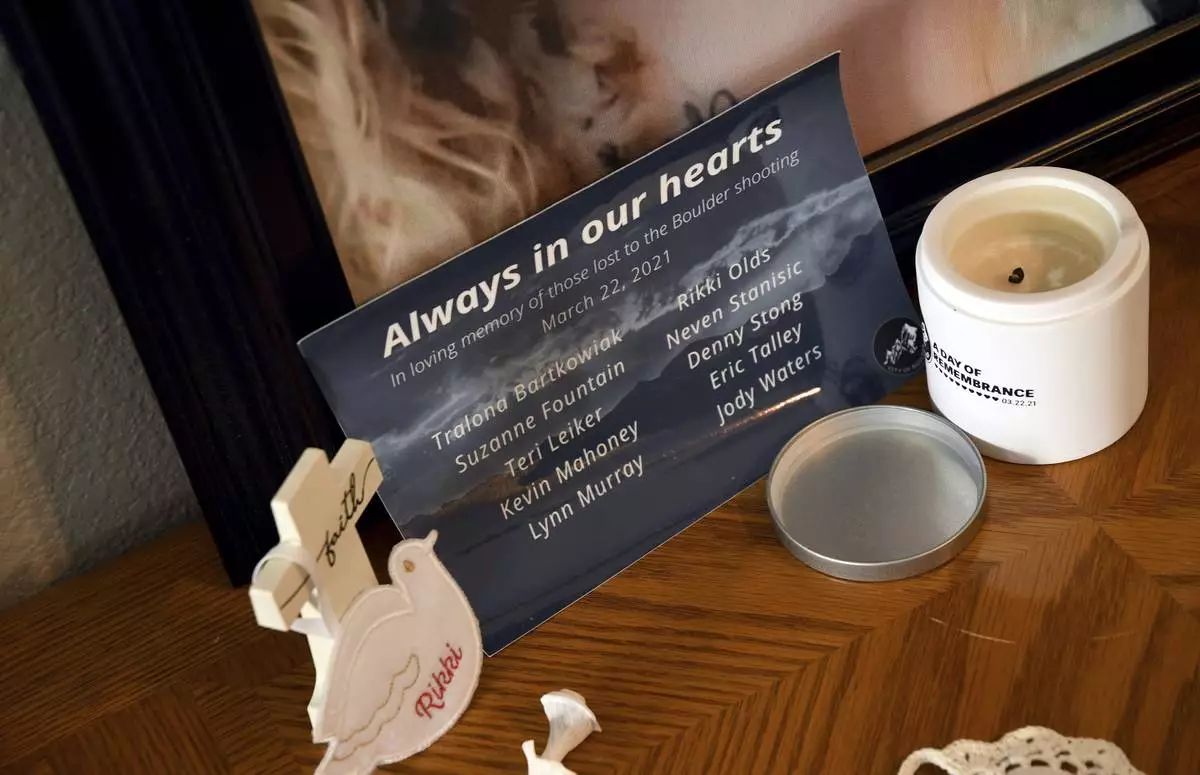
A tribute to Rikki Olds, who was fatally shot along with nine other people at a grocery store in Boulder, Colo., in 2021, is set up in her grandmother's home in Lafayette, Colo., Tuesday, Aug. 27, 2024. (AP Photo/Thomas Peipert)
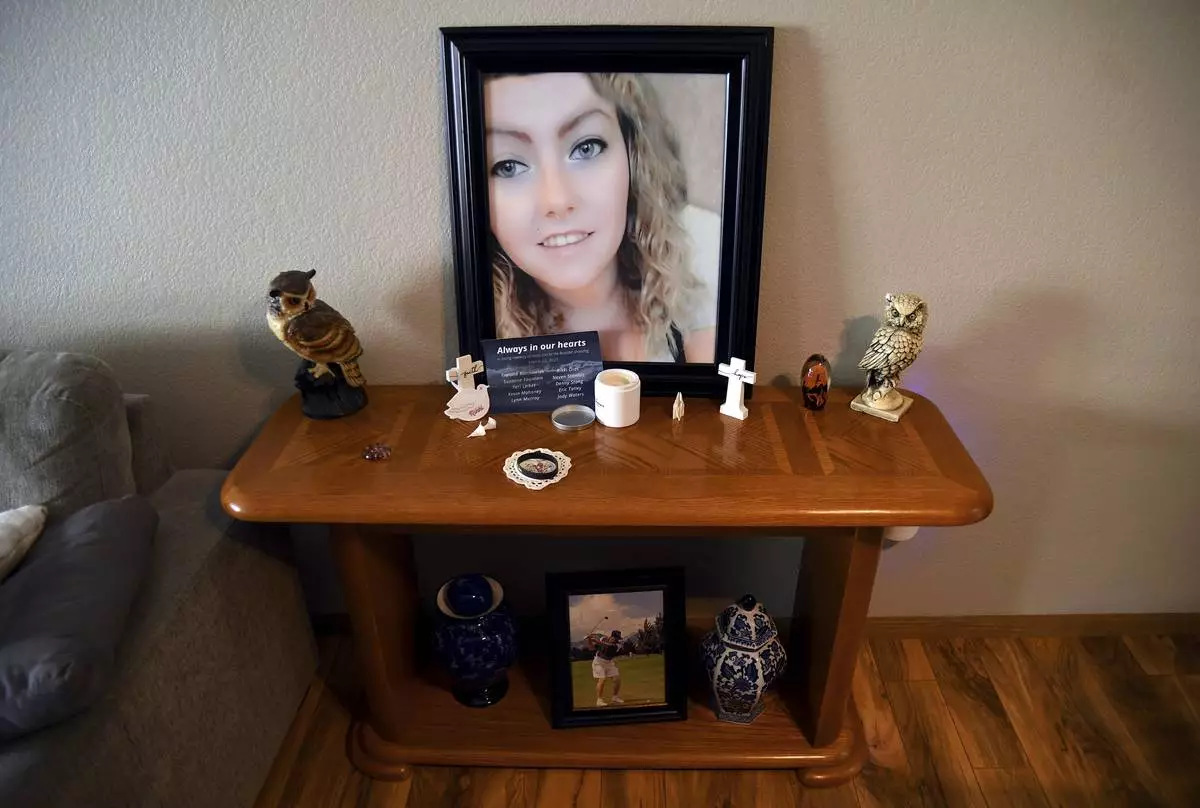
A tribute to Rikki Olds, who was fatally shot along with nine other people at a grocery store in Boulder, Colo., in 2021, is set up in her grandmother's home in Lafayette, Colo., Tuesday, Aug. 27, 2024. (AP Photo/Thomas Peipert)
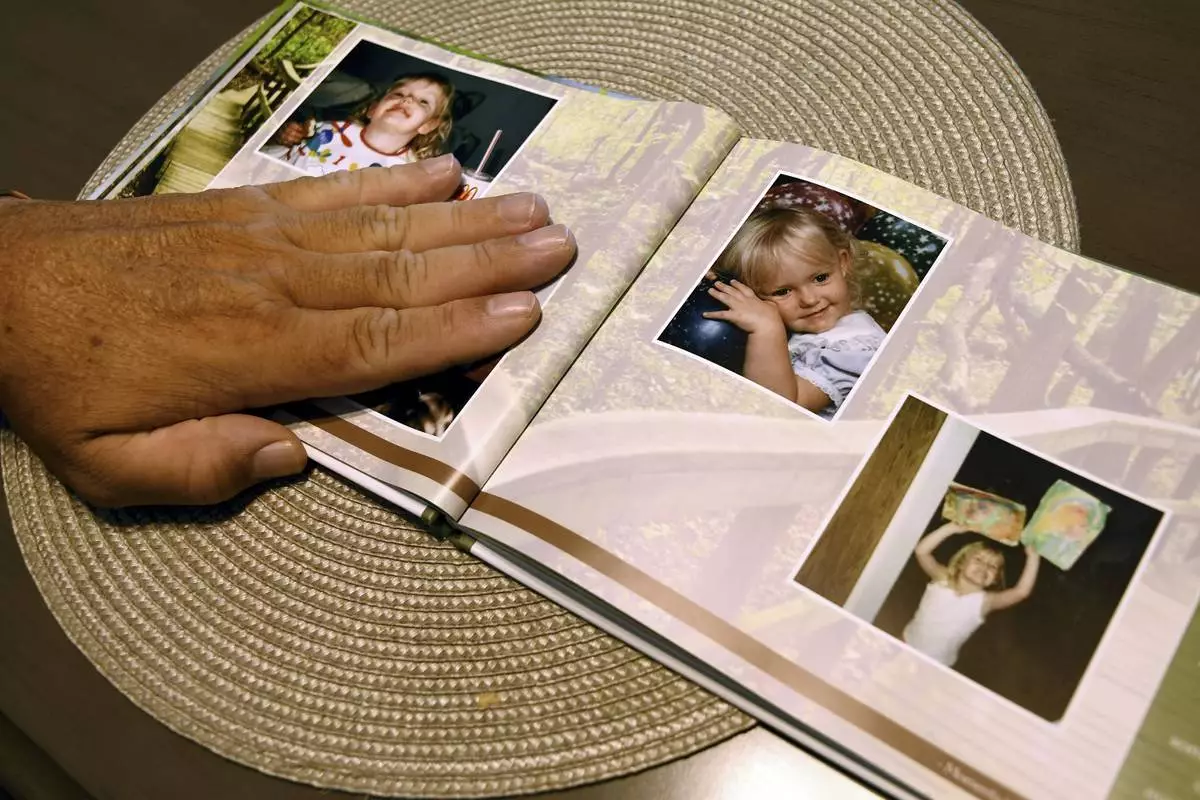
Robert Olds, uncle of Rikki Olds, who was fatally shot along with nine other people at a grocery store in Boulder, Colo., in 2021, looks through a memorial scrapbook in Lafayette, Colo., Tuesday, Aug. 27, 2024. (AP Photo/Thomas Peipert)
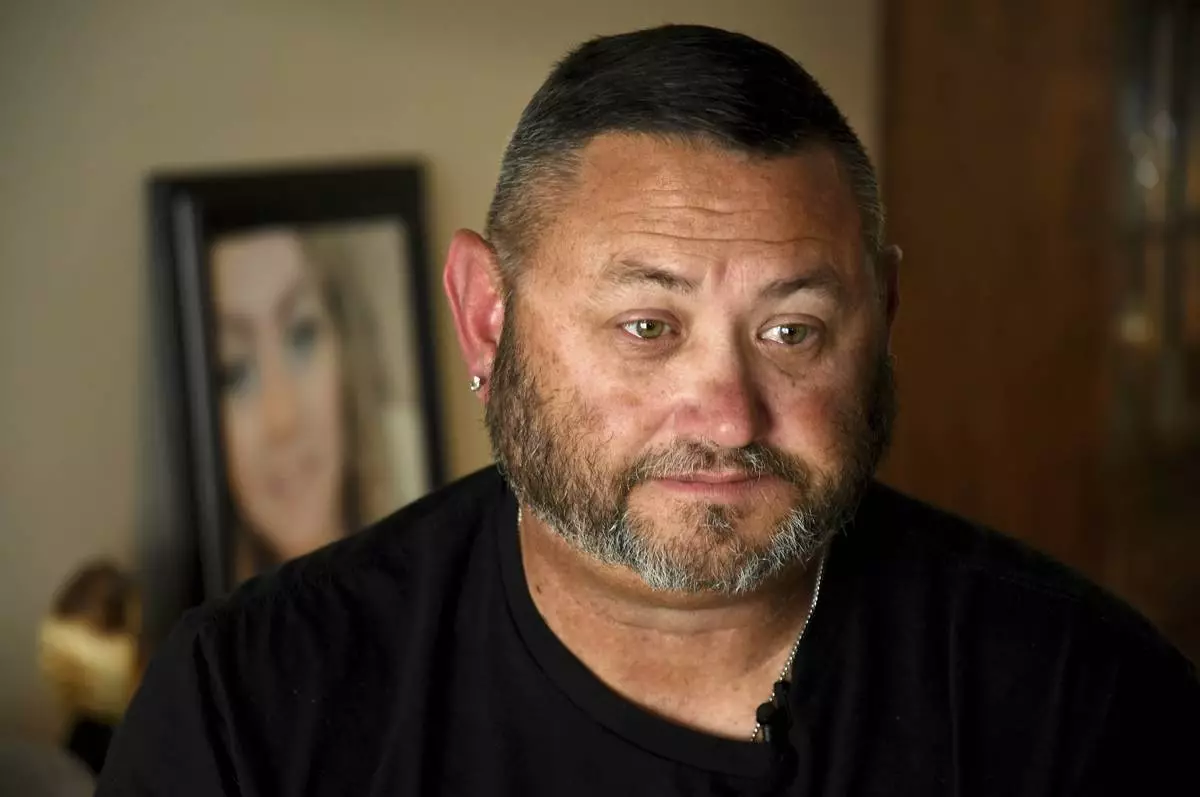
Robert Olds, uncle of Rikki Olds, who was fatally shot along with nine other people at a grocery store in Boulder, Colo., in 2021, is interviewed in Lafayette, Colo., Tuesday, Aug. 27, 2024. (AP Photo/Thomas Peipert)


